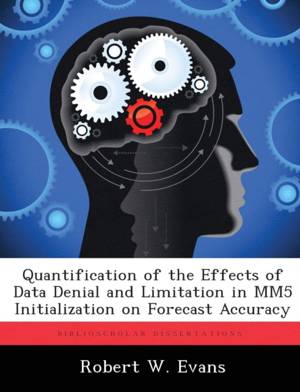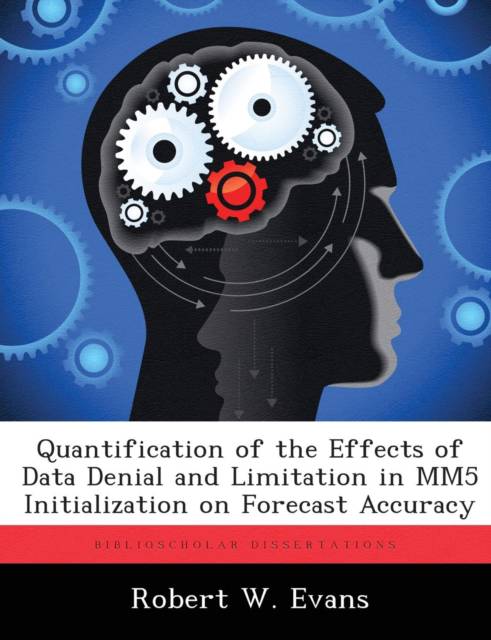
- Retrait gratuit dans votre magasin Club
- 7.000.000 titres dans notre catalogue
- Payer en toute sécurité
- Toujours un magasin près de chez vous
- Retrait gratuit dans votre magasin Club
- 7.000.0000 titres dans notre catalogue
- Payer en toute sécurité
- Toujours un magasin près de chez vous
Quantification of the Effects of Data Denial and Limitation in MM5 Initialization on Forecast Accuracy
Robert W Evans
Livre broché | Anglais
54,45 €
+ 108 points
Description
Denied and limited model input data degrade the accuracy of numerical weather prediction (NWP) model forecasts. Inaccurate forecasts can negatively impact all military operations and public safety in general. Using the 3-Dimensional Variational Analysis data assimilation scheme and the Pennsylvania State University (PSU)/National Center for Atmospheric Research (NCAR) Mesoscale Model 5 (MM5) as configured and run operationally by the Air Force Weather Agency (AFWA) in the European theater, input observations were denied in three different categories: total, upper air, and surface observation denial. Two control groups were run using all available data as received by AFWA. The main control group used a 6-hour old first guess as a baseline. The data denied test cases and the secondary control group used a 30-hour old first guess because it was not possible to deny data from the first guess. The secondary control group was used to estimate errors resulting from the use of different first guess forecasts between the main control group and the test cases for all forecast times. The analyses show statistically significant differences between the main control group and test cases in almost every instance.
Spécifications
Parties prenantes
- Auteur(s) :
- Editeur:
Contenu
- Nombre de pages :
- 124
- Langue:
- Anglais
Caractéristiques
- EAN:
- 9781288280520
- Date de parution :
- 12-11-12
- Format:
- Livre broché
- Format numérique:
- Trade paperback (VS)
- Dimensions :
- 189 mm x 246 mm
- Poids :
- 235 g

Les avis
Nous publions uniquement les avis qui respectent les conditions requises. Consultez nos conditions pour les avis.






